World Journalists Conference 2025 opens in Seoul, focuses on AI, climate change
SEOUL - The World Journalists Conference (WJC) 2025 opened in Seoul, South Korea on March 31, focusing on the use of artificial intelligence (AI) in the media and climate change.
WJC is hosted by the Journalists Association of Korea, headed by its president, Park Jong-hyun of the Segye media outlet.
It is supported by South Korea’s Ministry of Culture, Sports and Tourism, Ministry of Foreign Affairs, and the Korea Press Foundation (KPF).
Manila Bulletin from the Philipp[nes is a participant in the conference. A total of 62 foreign journalists from 52 countries are in South Korea for the conference.
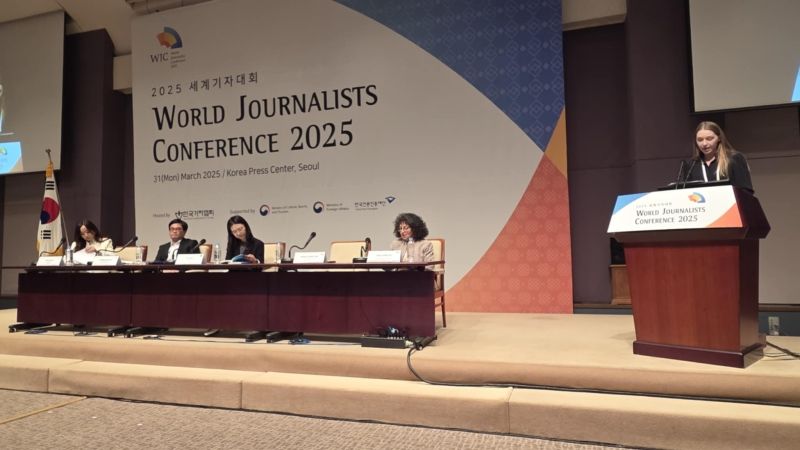
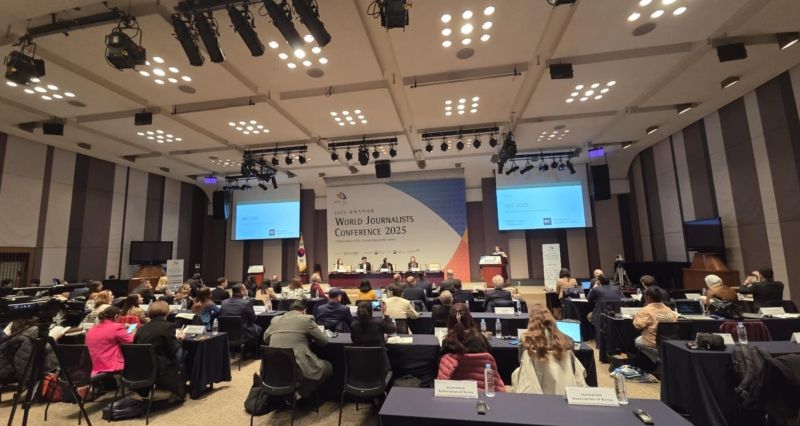
Journalists from 52 countries, including the Philippines, gather in Seoul, South Korea, on March 31 for the World Journalists Conference 2025 (Jonathan Hicap)
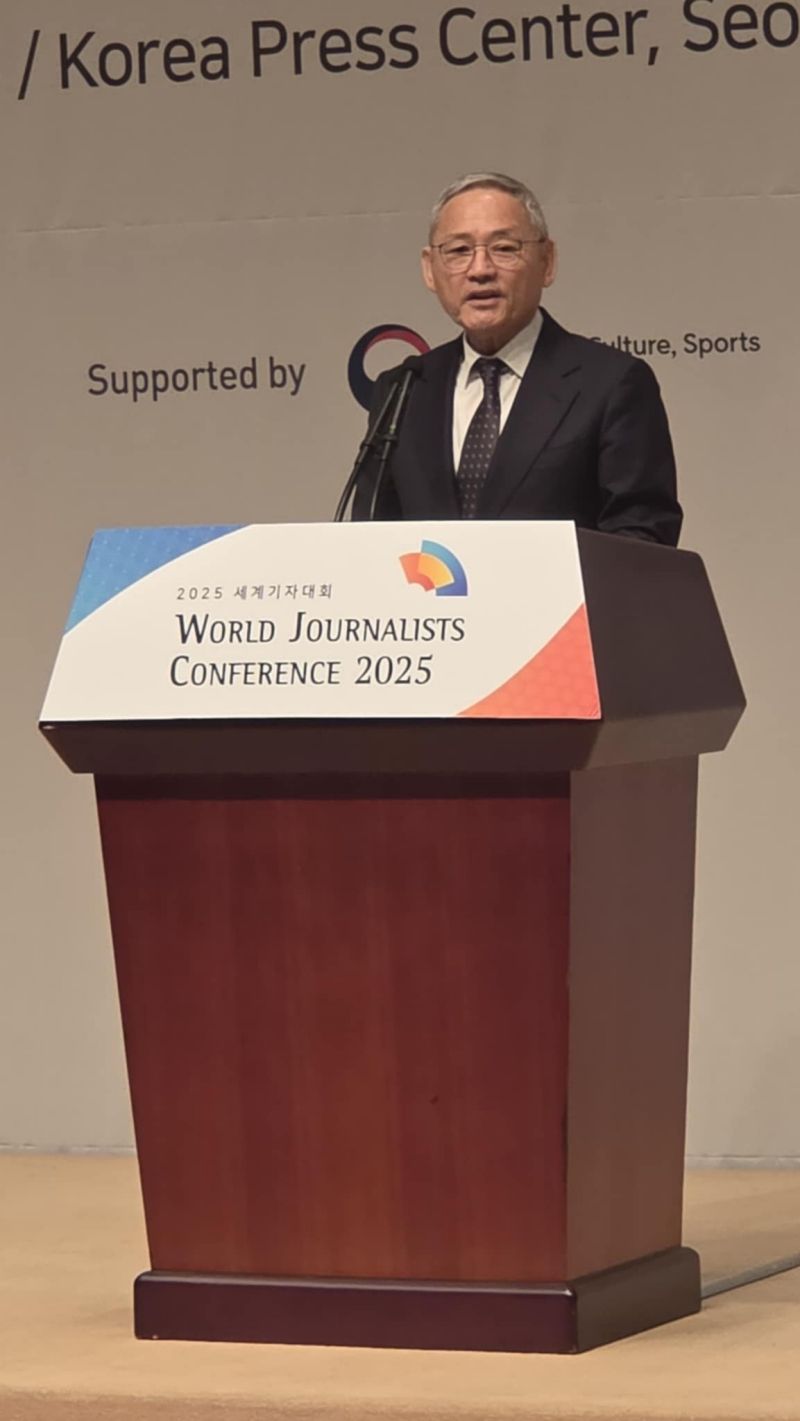
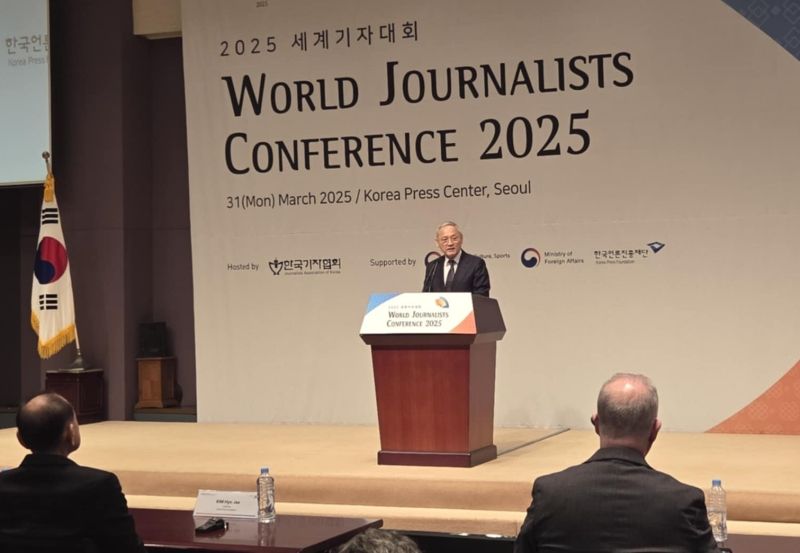
Minister Yu In-chon of Korea’s Ministry of Culture, Sports and Tourism speaks at the World Journalists Conference 2025 on March 31 in Seoul (Jonathan Hicap)
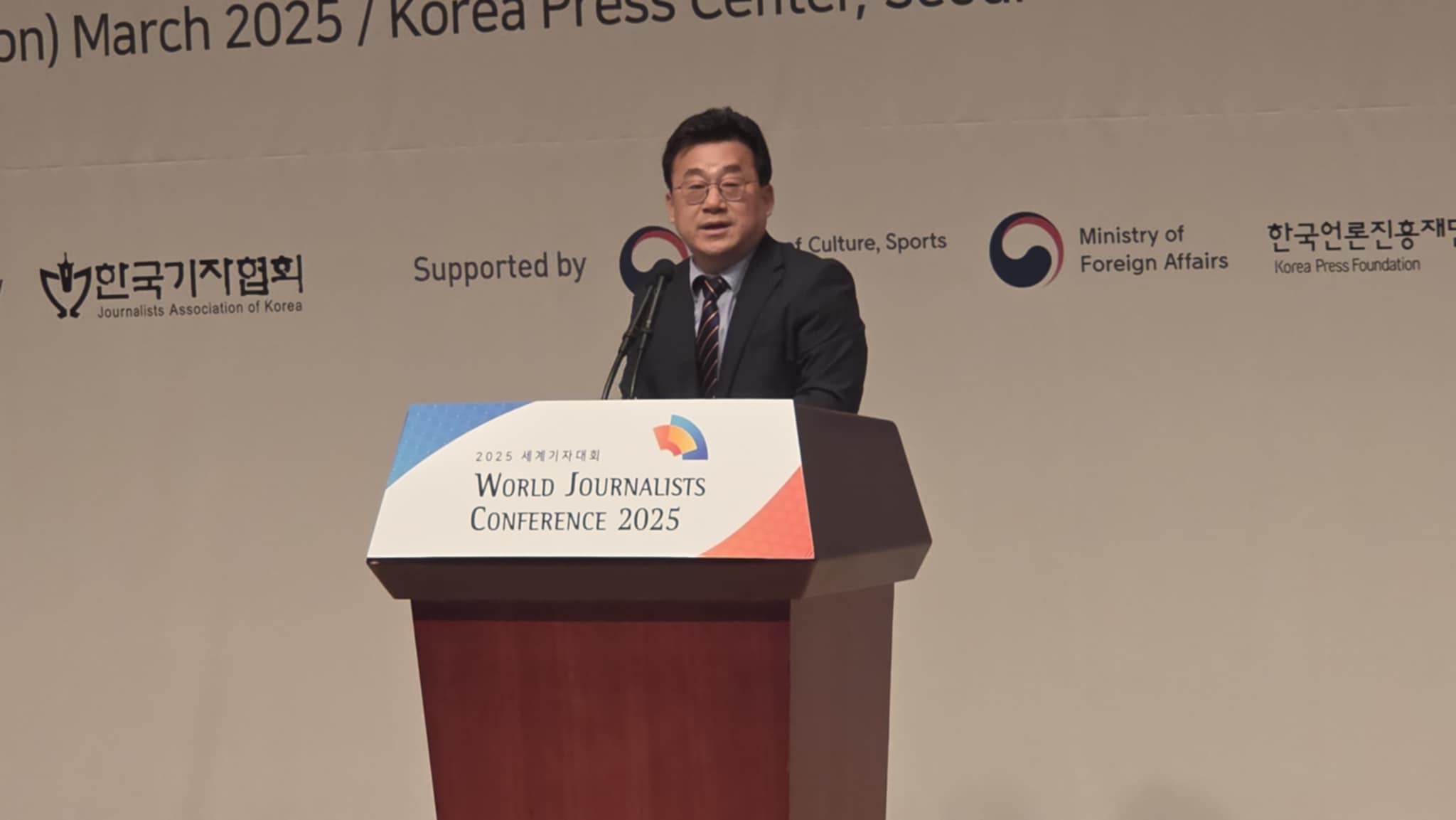
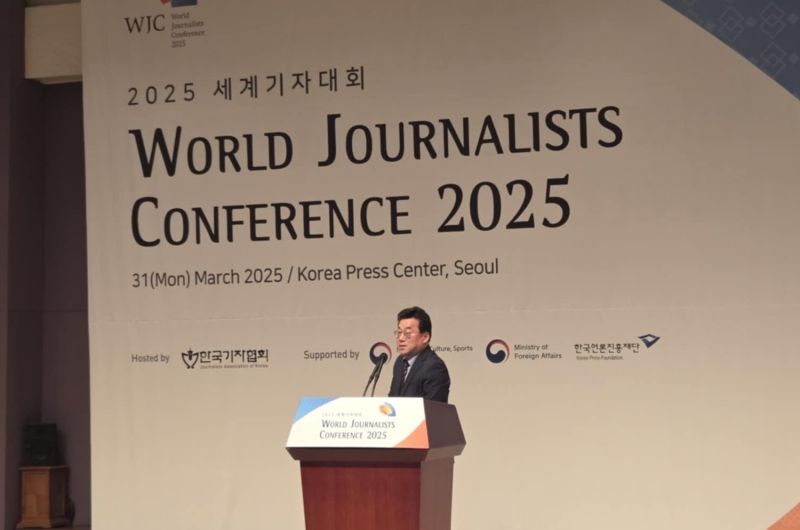
Journalists Association of Korea president Park Jong-hyun welcoming participants to the World Journalists Conference 2025 on March 31 in Seoul (Jonathan Hicap)
In his opening address, Park Jong-hyun told the participants, “I hope you will take this opportunity to reaffirm to the fundamental mission of journalism, the noble calling , and the solidarity that binds us together. The Journalists Association of Korea is committed to fostering meaningful dialogue and actively engaging with your insights, ensuring that this gathering is both profound and enriching for all.
The JAK, founded in 1964, is celebrating its 61st anniversary this year and is the “largest and most influential press organization in Korea.”
He said that during the Covid-19 pandemic from 2020 to 2022, the WJC was held virtually.
“Many of our fellow journalists attending this year's event may already be familiar with past editions of the World Journalists Conference. Over the years, the conference has served as a platform for in-depth discussions on global issues, including key media-related topics such as 'Peace on the Korean Peninsula and in the World,' 'The Development and Future of Journalism,' and 'Preparations for the Post-Covid Era,’” he said.
Park said, “Both issues addressed in this year’s event are challenges that the international community and the press must grapple with in search of viable solutions.”
The first part of the conference had the theme “Shaping the Future of Journalism in the AI Media Era: Copyright and Ethical Challenges.”
The speakers were Hwang Seok-ha, staff writer of the Busan Daily News; Yin Cao, journalist of China Daily; Riazul Haq, special correspondent of Pakistan’s 92 News; Natalia Szewczak, journalist at Business Insider Pakistan; and Diana Fuentes, executive director of Investigative Reporters and Editors in the US.
The moderator was Lee Jo Hee, managing editor of the Korea Herald.
It will be followed by “The Role of Journalism in Confronting Climate Change and Environmental Shifts.”
Th speakers are Murray Brewster, senior defense and foreign policy correspondent of the Canadian Broadcasting Corp.; Tregahun Asefa Shimekit, senior news editor of NBC Ethiopia TV; Gianmarco Volpe, global desk chief of Italy’s Agenzia Nova; and Yun Ji Ro, director of Korea’s NEXT Group.
The moderator is Park Sang Woo, journalist at JTBC in South Korea.
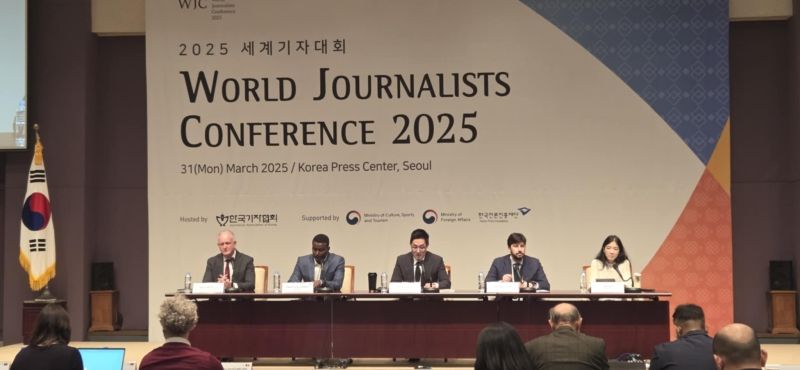
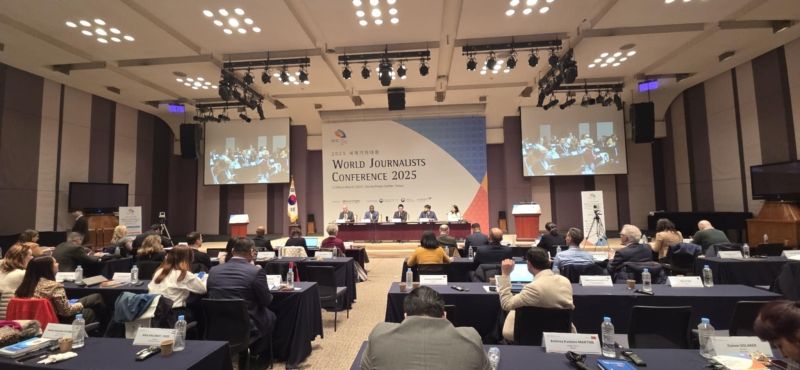 The speakers for climate change (Jonathan Hicap)
The speakers for climate change (Jonathan Hicap)